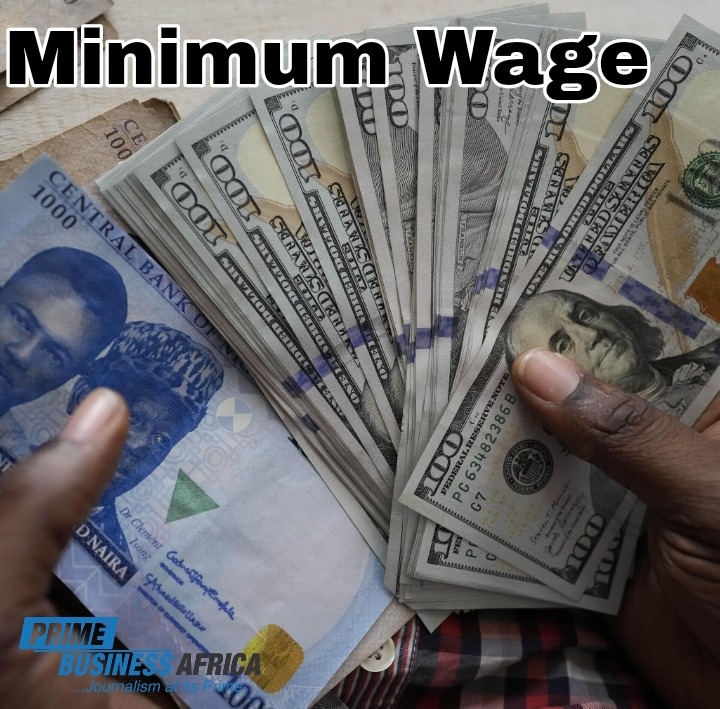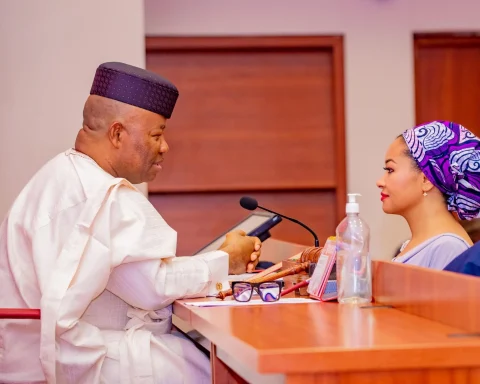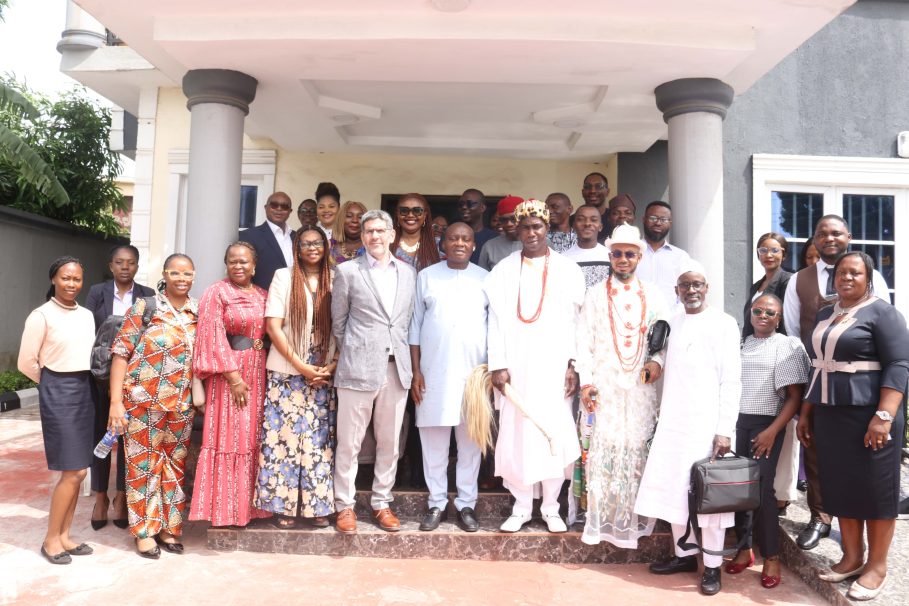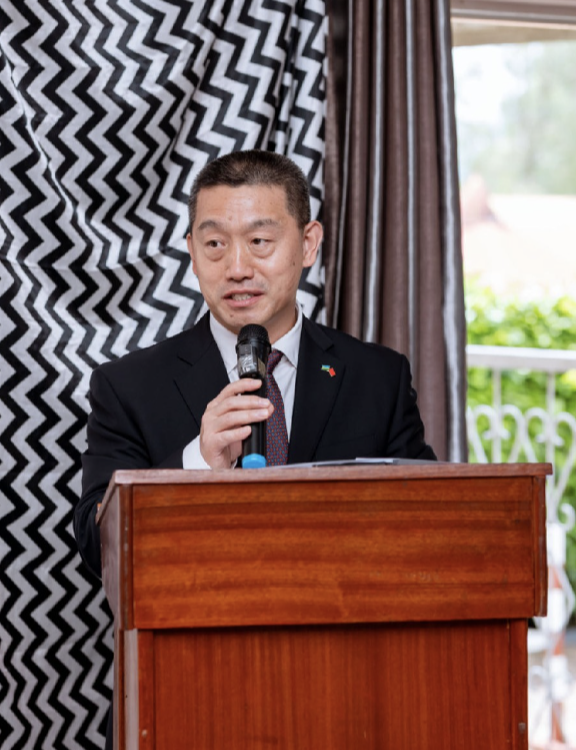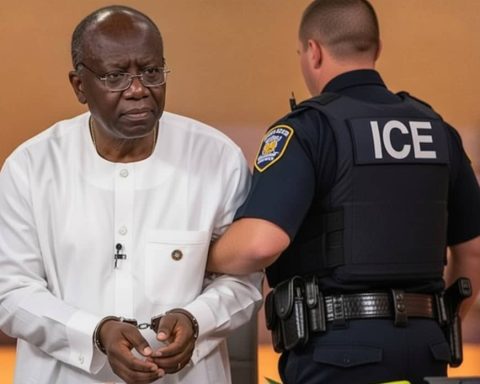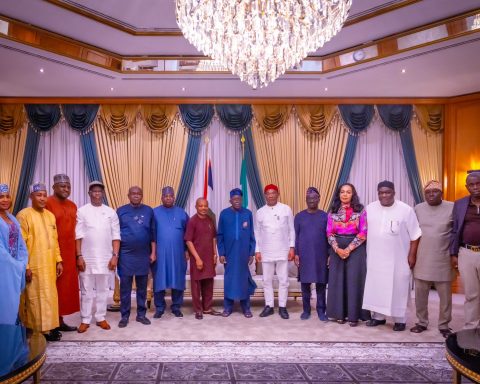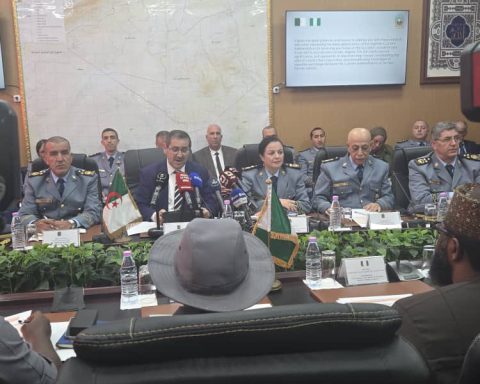As talks about reviewing the minimum wage for Nigerian workers continue, economic analysts have underscored the need for the Federal Government to urgently implement it to mitigate the rising economic hardship in the country.
Chief Economist and Senior Partner at SPM Professionals, Dr Paul Alaje, stressed that when talking about minimum wage review, it is important to consider the rate of inflation and exchange rate between the naira and other foreign currencies because they determine the real worth of what Nigerian workers are paid in terms of what it can afford for them.
Join our WhatsApp ChannelThe Federal Government had on Tuesday ,ahead of the Worker’s Day celebration, announced an increase in the remuneration of civil servants in some salary structures between 25 and 35 per cent and approved a pay rise of between 20 and 28 per cent for pensioners on the Defined Benefits Scheme all with effect from January 1, 2024.
Alaje, who appeared on Channels Television programme, Morning Brief, on Thursday, stated that when the current pay rise which according to him, is around N40,500, is compared to the exchange rate between the naira and dollar today, it means average Nigerian worker is perhaps living on $30 per month which is still very low.
The economic expert maintained that to ensure that workers escape the poverty bracket, the government should be looking at a minimum wage that is not less than N130,000 and N250,000. However, because of the implication on inflation and costs, he recommended that the government should pay nothing less that N100,000.
Meanwhile, organised labour has given the Federal Government May 31 as deadline to conclude discussions on minimum wage or they would embark on a nationwide industrial action.
The organised labour gave the ultimatum during May Day celebration yesterday in Abuja. President of Nigeria Labour Congress (NLC), Mr Joe Ajaero and Trade Union Congress (TUC), President, Festus Osifo, lamented the harsh economic realities that Nigerians, especially workers have faced within the last one year.
The labour unions insisted on their earlier demand of N615,000 as minimum wage, adding that every employer with five employees must comply.
They said: “The battle for a new national minimum wage rages on. Our demand of N615,000 stands firm, rooted in the grim reality of workers’ lives across the nation. Through rigorous engagement with all stakeholders, we’ve pressed for a two-year lifespan for the new act, with automatic adjustments triggered by inflation surpassing 7.5 per cent.
“Every employer with five employees and above must comply. We demand robust monitoring and strict penalties for non-compliant state governments. We have based our figures on real data gathered from your responses nationwide, ensuring that our demand reflects the true cost of living for an average family.”
They maintained that anything less than what they considered as a living wage, would condemn workers to poverty.
“We urge vigilance as we near the finish line, determined not to let other interests derail our pursuit of economic justice. Together, we will ensure that President Tinubu’s promise of a living wage becomes a reality for every worker in Nigeria.
“If, however, the negotiation of the National Minimum wage is not concluded by the end of May, the Trade Union Movement in Nigeria will no longer guarantee industrial peace in the country,” the labour unions jointly stated.
Dr Alaje said there is no minimum wage justice in Nigeria when compared to costs of things like access to quality education, healthcare, feeding, and spending on energy among others.
Comparing Nigeria with South Africa which calculates minimum wage for workers per hour, Alaje said Nigeria is still far behind.
He pointed out that what caused agitation for minimum wage increase was high level of inefficiency in the Nigeria that led to low productivity and supply challenges.
“You need to look at cost of transport a person’s multiplied by 250% since 29th of May, when the President announced that subsidy is gone, when you look at the cost of energy, the cost of production, remember, we the manufacturing sector, most of them have also been affected by the recent adjustment by electricity authority.
“The cost of goods that, is the few ones we are able to produce in Nigeria has increased. The cost of imported goods has also increased why? Because of exchange rate that is fluctuating most of the time is getting worse off. When we now look at the cost of exchange rates in reality of our inflation today, inflation figures last published by the National Bureau of Statistics is 33.2% when you combine that on the average in the last 10 years or maybe to be charitable I will say in the last nine years, what has inflation been, maintain double digits.”
“Our recommendation from all parameters means government should be looking at nothing less than N100,000.
On her part, Gbemisola Alonge, an economist and Consultant with African Practice, emphasised the need for states and private employers to comply with national minimum wage.
She also stated that while the minimum wage is to help protect employees from exploitative wages it is also important to ensure that it is not such that puts employers out of business.
Victor Ezeja is a passionate journalist with seven years of experience writing on economy, politics and energy. He holds a Master's degree in Mass Communication.


